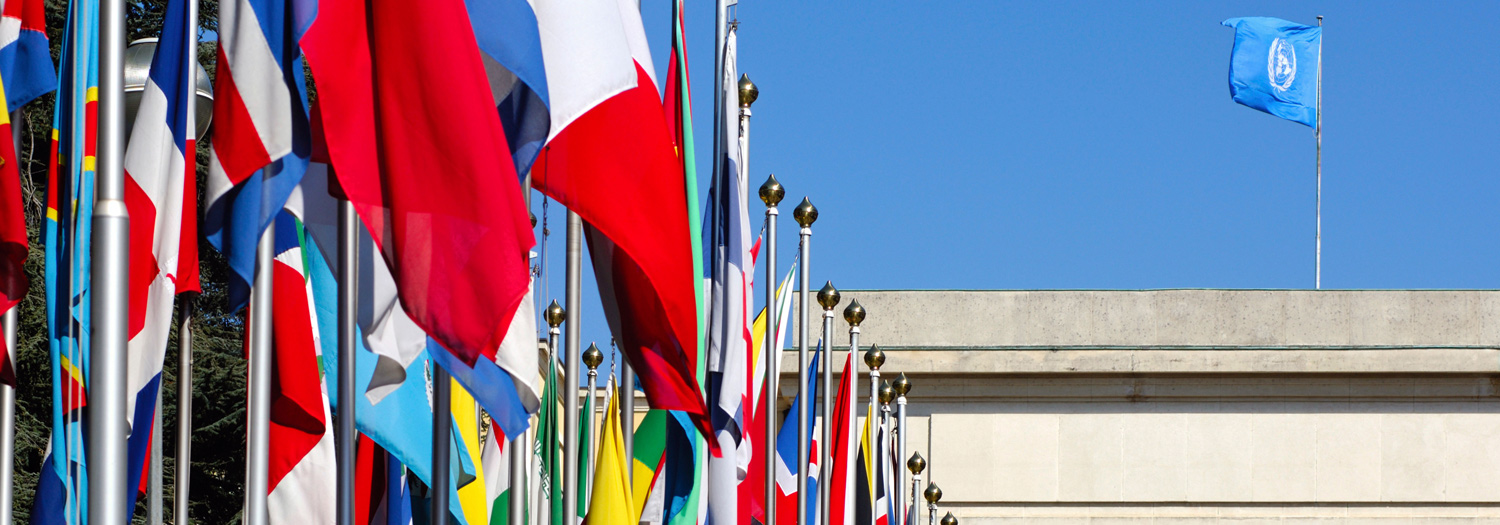
Photo: Reuters
Multilateralism
Now, in the first half of the 21st century, all nations, even the most powerful, need the multilateral system. Weaker members of the international community would prefer to navigate in the international arena according to agreed international rules and by means of institutions in which their voices can be heard and their legitimate interests represented and recognized. And in this time of global interdependence, even the mightiest powers have limits to their influence, to their capacity to control how others react to their actions.
All countries face problems that respect no national boundaries and therefore require global cooperative solutions, such as global warming, global security, destruction of biodiversity, depletion of fisheries, ocean pollution, infectious diseases, drug trafficking, or human smuggling, just to name a few. Not one of these dire challenges can be met by a nation acting alone. Only through international cooperation can there be any hope of success in combating them.
Independent Panel on Pandemic Preparedness and Response (IPPPR)
The international system requires fundamental transformation if leaders are to prevent a future pandemic.
The final report of the IPPPR, of which Ernesto Zedillo is a member, presents an impartial, independent and comprehensive review of the WHO-coordinated international health response to COVID-19 and experiences gained and lessons learned from that, and makes recommendations to improve capacities for the future. To read the report, click here. Continue reading link here
Collective International Actions Needed Now More than Ever
Success in one country to control an epidemic is not really a sustainable success if others do not achieve a similar success.
Defeating the pandemic will be a longer and more expensive process –in human lives lost and economic cost—than would be required if it were tackled as a truly global public good in the national interest of all countries involved. Read more in the PDF (opens in new window).
Ethical Leadership and Multilateral Cooperation
The Elders’ programme on Ethical Leadership and Multilateral Cooperation seeks to support international cooperation, strong multilateral institutions and the Sustainable Development Goals as the most effective means of tackling the global challenges we all face. The position paper, “Why multilateralism must reshape the world after Covid-19,” can be found here (external link — opens in new window).
Latin America, International Cooperation, and the Covid-19 Crisis
In April 2020 a group of former Latin American presidents, officials and distinguished scholars called for international cooperation to confront the Covid-19 crisis. The crisis should be an opportunity to strengthen democracy in Latin America and show that it can deliver for its citizens. Read the ElPais article (PDF — opens in new window). First published in El Pais (external link — opens in new window).
Global Public Goods
The concept of global public goods provides a powerful framework to rediscover both classical and contemporary arguments for international cooperation, to generate innovation and to identify pathways to overcoming some of the obstacles governments confront in grappling with today’s global ills. Learn more in our planetary health and the provision of global public goods document (PDF — opens in new window).
Meeting Global Challenges: International Cooperation in the National Interest
To read about global public goods, what they are and why many are in short supply, see the excerpts from chapter 2 (PDF — opens in new window). Download the full PDF document here.